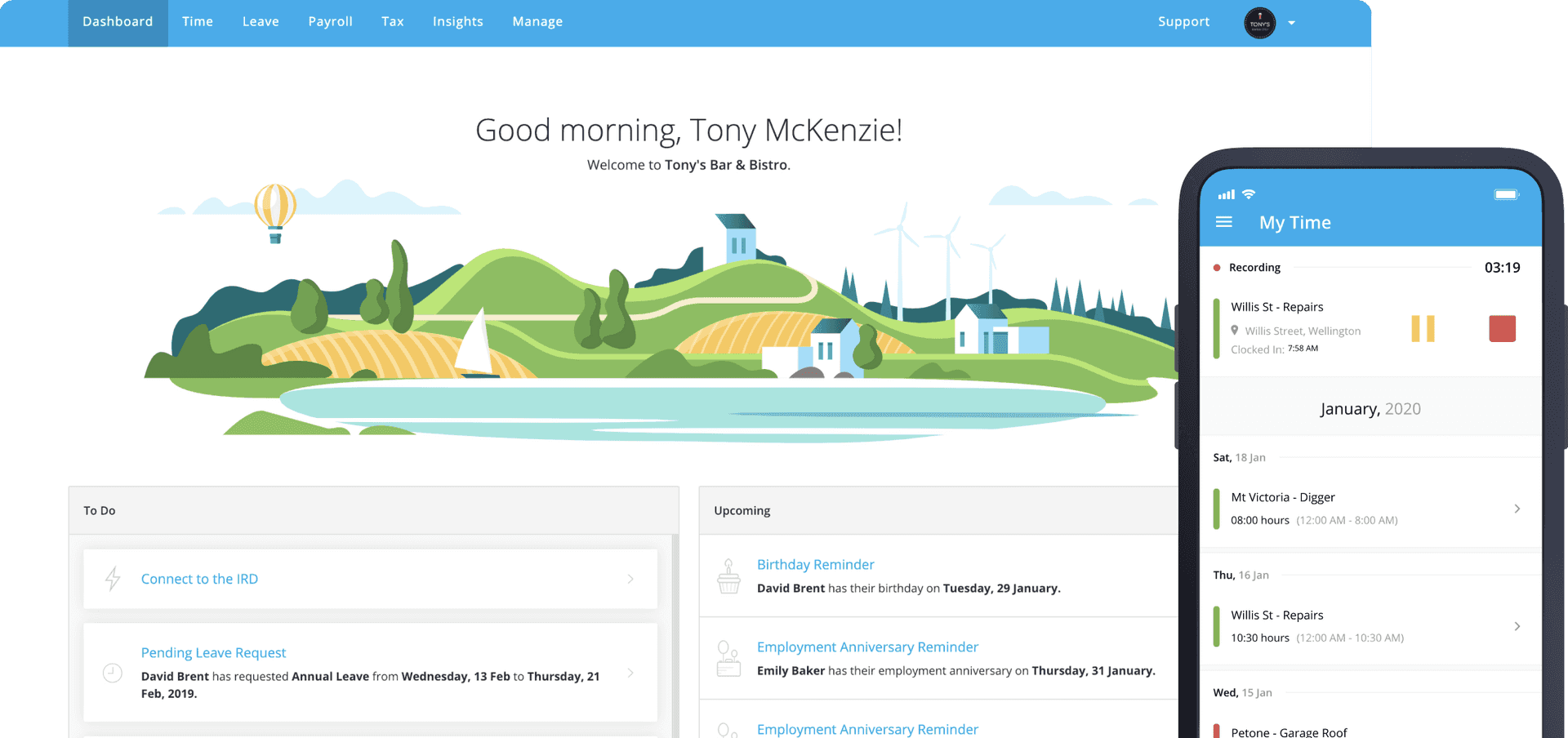Payroll & Finance
Employee Share Schemes - An alternative way to incentivise your staff
January 11, 2021
An employee share option plan, or ESOP, can be a fantastic way to attract, engage and incentivise key employees by offering stock options rather than cash incentives or high salaries.
We've all heard success stories of employees doing very well for themselves by acquiring stock options in early stage companies, but how common is this in NZ and why are we seeing more and more companies take advantage of this new wave of employee ownership?
While typically most common in startups and tech companies, ESOPs are becoming increasingly popular for larger and more established companies. Any company wanting to create an ownership mentality and a greater sense of employee engagement can benefit from establishing an ESOP, no matter the age or stage.
How do ESOPs work?
An ESOP is a type of Employee Share Scheme (ESS), which offers share options to key employees. Once these options vest (are made available), either at performance-based or time-based milestones or a combination of both, the employee can choose to exercise their option (buy the shares) at a pre-agreed price.
The rules and conditions for an ESOP offer will be set out in the Offer Letter, or Plan Rules. If options don’t vest for any reason, then they lapse and can be recycled into the option pool to be allocated to other staff.
The option-based nature of ESOPs means that they can provide an appealing way to offer competitive remuneration without immediately drawing cash from the business. As such, ESOPs can be an ideal option for startups and private companies in the growth stage.
Benefits for employees
ESOPs give employees the opportunity to invest in a business and potentially make impressive returns in a tax-efficient way, usually without having to find the means to pay a large lump sum payment upfront.
An ESOP can give key employees a sense of ownership in the company they work for, and are a highly effective mechanism for engaging your staff.
Employees with an ownership stake report increased job satisfaction and motivation. One survey that’s been tracking 5,504 workers since 1997 shows that those working at companies with employee ownership have had consistently better jobs and benefits and higher wages and wealth, regardless of the industry they work in.
Benefits for employers
When employees can acquire an ownership stake in the company at a locked-in, often attractive price, it creates a powerful bond between a business and its employees. Benefits include:
Optimising employee retention (up to 3-4x the industry-standard retention rate)
Improving workplace culture & job satisfaction
Boosting productivity & profitability
Increasing customer loyalty through improved service
Given organisations with the most engaged employees experience higher productivity, higher customer engagement, better retention and 21% higher profitability, the benefits of ESOPs can soon outweigh costs of implementing and managing such a scheme.
ESOPs can also be used as part of a potential exit or sale strategy for current owners to eventually pass ownership to staff members.
Types of Employee Share Schemes
There are different types of Employee Share Schemes that will suit different businesses. The main options include:
1. Employee Share Option Plans (ESOP)
An ESOP is a method of granting equity (or ownership) to an employee over a period of time. The employee initially receives options to purchase shares at a later stage. ESOPs are often favoured by early-stage growth companies, where the company doesn’t have the cashflow to pay large salaries, employees may not be able to afford to purchase shares, and/or the future of the company is still hard to predict.
Share options are traditionally earned through longevity in the company and/or performance milestones. Share options will normally defer the tax payable by the employee until the point the options convert to shares. Eventual tax implications for the employee can be aligned with the employee’s opportunity to sell the shares when it will be easier to find any tax payment.
Early stage investors will often request that an ESOP is implemented prior to their investment, as they recognise their potential value for the company. More mature companies can also benefit from ESOPs when they are heading toward a sale or liquidity event.
2. Employee Share Trusts
Employee Share Trusts will typically be used to immediately ‘sell’ ownership of shares to employees. Often favoured by more established companies, a Trust entity can be established to hold shares for employees in the parent company.
Typically businesses will either offer a low or no interest loan (or a bonus payment) to employees to fund the purchase of the shares. Loans will often not require repayment until such time as an eventual liquidity event in the company when the employees realise their gain from owning the shares.
3. Phantom or Bonus Share Schemes
“Phantom” share schemes create some of the benefits of formal share ownership without requiring the physical transfer of shares or options. Often favoured in businesses with a strong profit share focus, Phantom schemes allocate ‘shares’ to employees who will get a cash bonus based on their ‘ownership’ when dividends are calculated and/or a liquidity event occurs.
Employee Share Schemes and PAYE reporting
Tax is calculated on an employee share scheme benefit when an employee is given shares by their employer for free or purchases them below market value.
The difference between the market value of the shares and what the employee paid for them is considered taxable income, the same way that a cash bonus would be.
Employers can choose whether to withhold PAYE on such benefits (calculated using extra pay rules), or leave it to the employee to pay their own tax at the end of the year.
Regardless of how the tax is paid, employers are required to report any taxable benefit received by an employee under any type of share scheme in the employer's employment income information via their payroll system.
Where do you start?
The first thing to do is decide which method of employee share scheme is right for your business. We’d encourage you to talk to your professional advisors such as lawyers or accountants first to ensure you choose the best scheme to achieve the outcome you’re after.
Once you’ve decided on an approach, the ESOP pool is allocated. This typically sits around 10% of total shares in the company. Employees then negotiate their ESOP and can use a tool like Orchestra to manage and oversee their progress towards their ownership.

About Orchestra
Orchestra’s all-in-one equity management platform gives you the tools to ensure your stakeholder relations and compliance are taken care of while maintaining your share registry obligations.






